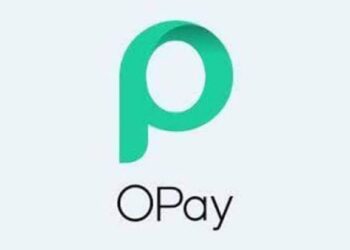Generation Z – broadly those born from the mid-1990s to the early 2010s – are true digital natives. They have grown up in an online world where technology shapes social life, learning, and even career opportunities. The websites and platforms they frequent are more than just sources of entertainment; they are tools for connection, discovery, income, and influence.
This explainer outlines the top 10 platforms Gen Z use most, and why these sites remain so central to their everyday lives.
1. Google and Search Engines
Although many young people now use TikTok or Instagram for quick searches, Google is still the primary tool for deeper research, academic work, and fact-finding. It remains indispensable for anyone who wants reliable information at their fingertips.
2. YouTube
YouTube is one of the most popular sites among Gen Z. It blends learning and leisure, offering tutorials, music, gaming content, vlogs, and short-form clips. Many also see YouTube as a stepping stone to building a career as a creator.
3. Instagram
With its emphasis on images, Reels, and Stories, Instagram thrives on visual storytelling. For Gen Z, it is a hub of lifestyle inspiration, brand discovery, influencer culture, and peer connection.
4. TikTok
TikTok dominates Gen Z’s attention through short, engaging videos. Beyond entertainment, it has become a space for product discovery, tutorials, cultural trends, and even news. Its algorithm-driven feed makes it addictive and highly personalised.
5. Facebook
While Facebook may not be the trendiest app for younger users, it still plays a role in cross-generational communication. Gen Z use it mainly for community groups, events, and staying connected with family or older friends.
6. Twitter / X
Twitter (rebranded as X) is where Gen Z go for real-time updates, breaking news, and viral conversations. It is also popular for commentary on politics, entertainment, and cultural debates.
7. WhatsApp
Especially in countries like Nigeria, WhatsApp is central to everyday life. Gen Z use it for group chats, content sharing, and increasingly, for business communication and customer engagement.
8. Betting Platforms (SportyBet, Bet9ja, etc.)
For some, gambling sites such as SportyBet and Bet9ja are a regular online destination. They allow users to place stakes on football, racing, and casino games. However, these platforms carry risks such as financial loss and addiction, making them controversial among young people.
9. News Websites (Punch NG, Legit.ng, etc.)
Local and national news outlets remain important to Gen Z, particularly in Nigeria. Sites like Punch NG and Legit.ng provide updates on politics, entertainment, technology, and social issues in ways that feel timely and relevant.
10. Emerging Platforms
Beyond the big names, Gen Z are quick to experiment with newer apps and platforms. Creator-focused spaces like Fanfix, for example, allow them to monetise content and connect with niche communities, reflecting their entrepreneurial and creative drive.
Why These Platforms Matter to Gen Z
Income potential: From influencer marketing to content creation and betting, some platforms offer opportunities for financial gain.
Publicity and relevance: Social platforms help Gen Z build personal brands and stay culturally connected.
Learning and growth: Sites like YouTube and Google support self-education and skill development.
Connection and convenience: Messaging and social apps provide instant, multifunctional communication.
Conclusion
Gen Z’s digital choices reveal much about their values: speed, creativity, authenticity, and opportunity. While platforms like TikTok, YouTube, and Instagram dominate globally, local news sites, messaging apps, and even gambling platforms shape their regional realities.
For businesses, educators, and policymakers, understanding where Gen Z spend their time online – and why – is key to engaging with this generation in meaningful ways.


















































































 EduTimes Africa, a product of Education Times Africa, is a magazine publication that aims to lend its support to close the yawning gap in Africa's educational development.
EduTimes Africa, a product of Education Times Africa, is a magazine publication that aims to lend its support to close the yawning gap in Africa's educational development.